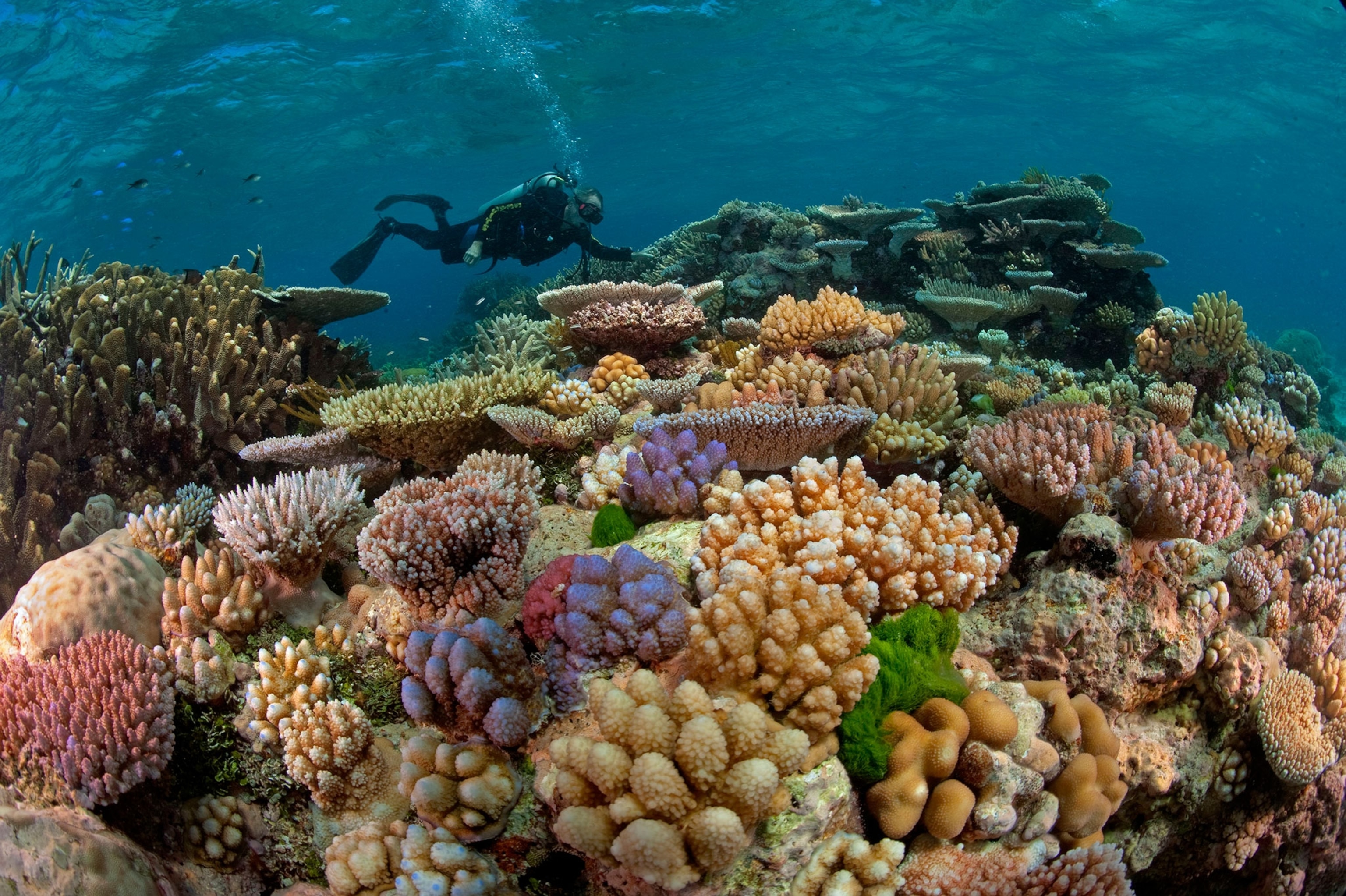
Corals Are Dying on the Great Barrier Reef
Australian government issues emergency response level and warns that bleaching may be linked to climate change.
Scientists have discovered an unprecedented die-off in the world's largest reef, the Great Barrier Reef, prompting the Australian government to issue its highest response level.
Diver surveys based off Cape York, Australia's northeastern tip, found up to 50 percent mortality in the reef from coral bleaching. Death among the organisms that build the reef's structure is most likely linked to rising temperatures in the ocean, the government announced.
"The corals in the remote far north of the reef experienced extremely hot and still conditions this summer, and were effectively bathed in warm water for months, creating heat stress that they could no longer cope with," Russell Reichelt, the chairman of the Great Barrier Reef Marine Park Authority, said in a statement.
Bleaching occurs when warm ocean water stresses corals to the point that they expel the tiny algae, known as zooxanthellae, that normally live inside their tissues. The algae provide the corals with most of their food, as well as their color. If the heat stress is lessened soon enough, the coral can recover. If not the, organisms will die.
What's happening in Australia is part of a global trend. Over the last year, about 12 percent of the world's reefs have bleached, due to El Niño and climate change. Scientists have predicted that nearly half of these reefs (more than 4,600 square miles or 12,000 square kilometers, or more than five percent of reefs) could disappear forever. That warming trend is expected to continue through the year, leading to what may be the longest global coral bleaching event in history.
The Australian government's new level-three response will mean increased surveying of the massive Great Barrier Reef system, which covers 133,000 square miles (344,400 square kilometers) and stretches 1,200 miles (2,000 kilometers) along Australia's northeast coast. A popular diving and tourist destination, the reef contributes more than $3 billion annually to the country's economy.
This latest observed bleaching event is the worst to hit this area of the reef, which has long been considered one of the most pristine sections of the system. The majority of the reef remains intact, in part because heavy rain and cloud cover over recent months have helped cool much of the area.
But scientists have increasingly worried about the reef's future, as the ocean warms and becomes more acidic.
As the concentration of carbon dioxide in the atmosphere rises due to emissions of fossil fuels, more of the gas is dissolving in the ocean. That is lowering the pH of the water, or making it more acidic, which can make it harder for reef-building organisms to construct their hard skeletons.

Reefs are also threatened by nutrient runoff from farms and lawns and from industrial chemicals, as well as overfishing of the wildlife that call the reefs home.
"The health and future of the Great Barrier Reef is a priority for us," said Reichelt. "Bleaching reinforces the need for us to continue working with our partners to improve the reef’s resilience to give it the best possible chance of dealing with climate change impacts."